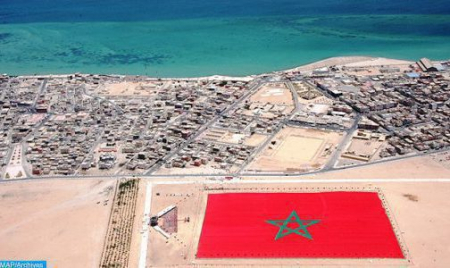AU Made a Mistake by Admitting Non-State Entity ‘Polisario’ – Former Congolese PM –
The African Union (AU) has made a mistake by admitting a “non-state” entity, namely the “polisario”, said, in Kinshasa, the former Prime Minister of the Democratic Republic of Congo (DRC), Samy Badibanga. The African Union (AU) has made a mistake, by no longer respecting its texts and by admitting a “non-State” entity such as “polisario”, Badibanga told MAP on the sidelines of a seminar organized Friday by the Public Affairs Cabinet (BM Patners), under the theme “The African Union in the light of the Sahara issue: how to move from a dynamic of failure to a final solution serving African unity”, adding that it is not possible to project oneself into an African future in the presence of this small group. In this regard, he stressed that the real discussions will have to take place between Morocco and Algeria and not with this “non-State” entity. In addition, the former Congolese Prime Minister commended the “real success” of Moroccan diplomacy as evidenced by the large number of countries which have opened consulates general in Dakhla and Laayoune. “HM King Mohammed VI has a vision and an approach that could effectively allow all disputes with Algeria over the Moroccan Sahara to be settled,” he said, noting that the Sovereign’s approach is based on full investment in the southern provinces for the development of the country as a whole. “Today I do not see the population of the southern provinces complaining of being left out of the development of Morocco,” he pointed out. In addition, Morocco, thanks to its economic stability, its reputation and its credibility at the international level, can help put in place poles and hubs capable of injecting strong momentum into South-South cooperation, he stressed. Thus, through several initiatives, in particular the Port of Dakhla, the Kingdom continues to move even closer to sub-Saharan Africa to ensure the prosperity of the entire region, he said. This seminar brought together about sixty participants and thirty speakers from five countries of the sub-region, namely Angola, Cameroon, Gabon, DRC and Zambia. Speakers included politicians, experts and academics, economists and representatives of the private sector, members of Think Tanks and eminent members of civil society.

